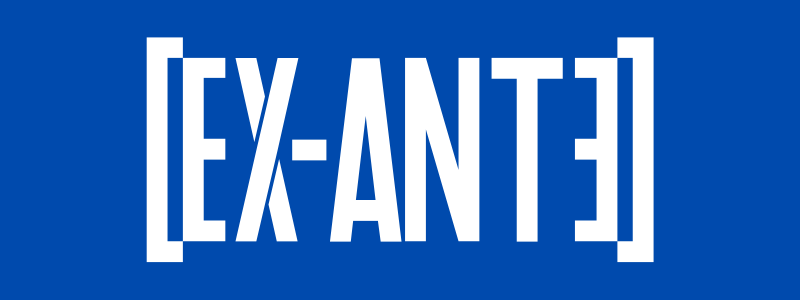We invite you to read the column written by our Senior Associate, Job Jorquera, and Associate, Erico Kompatzki, from the Civil Litigation and Arbitration Group, who analyzed the growth of arbitration as a dispute resolution mechanism, based on the figures from the latest annual report of the CAM.
In Chile, the growth of arbitration as a dispute resolution mechanism is not the result of chance, but rather of an increasing appreciation for various elements that distinguish it from the ordinary court system.
Among the factors influencing this preference—such as procedural speed, arbitrator specialization, and confidentiality—is also the legitimate expectation of reaching a final resolution to the dispute. Providing the parties with legal certainty and predictability regarding the reasoning behind the award is key.
In this context, the latest annual report published by the Arbitration and Mediation Center of the Santiago Chamber of Commerce (CAM) is particularly relevant. It presents figures and statistics on arbitration proceedings and awards, as well as their outcomes when subsequently reviewed by higher courts.
Indeed, according to its 2024 annual report, “of the 211 arbitration awards issued in national and international CAM Santiago arbitrations in 2024, 142 were challenged through one of the procedural remedies indicated in the chart below, representing 67.3% of the total.”
Moreover, over half of these challenges (53.5%) were complaints against the arbitrators who rendered the awards in various cases, followed by appeals and motions to vacate (cassation on procedural grounds), with 19 and 17 cases, respectively. Together, they account for 25.4% of the challenges filed.
These figures raise an important question: how often do higher courts intervene in decisions made by arbitral tribunals? This question goes to the heart of arbitration as an institution—its reliability and credibility as an alternative dispute resolution (ADR) mechanism. Once again, CAM provides insights to help answer this question.
Specifically, the report includes statistical data on the challenges filed against CAM Santiago arbitrators or awards during 2024. For those of us who support arbitration, the numbers quickly dispel any doubts about its robustness as an alternative to the ordinary court system.
Notably, the breakdown of challenges resolved by higher courts immediately shows that only a minimal portion of challenges against arbitration awards are upheld.
First, with regard to motions to vacate international awards, Chilean courts not only rejected all five such motions filed in 2024 but have also consistently dismissed all of these challenges since Law No. 19.971 (LACI) came into force.
This reflects a strong application in Chile of the principle of minimal court intervention (enshrined in Article 5 of LACI). Of course, nothing prevents a motion to vacate from being granted in the future, but clearly, courts show reluctance to intervene in the domain of international arbitration tribunals—an approach that aligns with the institution’s objectives and strengthens Chile’s reputation as a reliable arbitration forum, a position recently confirmed by the Constitutional Court.
Second, something similar is observed with motions for procedural annulment and appeals. Of the eight decided last year, none were upheld. Half of the motions were declared inadmissible or rejected, while the rest were either withdrawn or left unresolved.
Given that appeals allow for a full review of the merits, this supports the view that arbitrators apply sound legal reasoning in resolving disputes.
Third, we turn to complaints (recurso de queja) resolved in 2024. As mentioned, these are the most common form of challenge to arbitration awards in Chile: 53.5% of awards under CAM were challenged via complaint, and of the 104 challenges resolved in 2024, 66.3% were of this type. Clearly, complaints have become the preferred remedy for parties seeking to challenge arbitral awards.
That said, considering Article 545 of the Organic Code of Courts—“the complaint aims exclusively to correct serious faults or abuses in the issuance of judicial resolutions”—the question arises: do serious issues exist in the issuance of arbitral awards, or is this simply an overly prolific use of the remedy?
The 2024 CAM annual report allows us to quickly dismiss the first option. Only three complaints were upheld, which represents just 4.3%.
From this, we can infer that—aside from certain exceptional cases that prove the rule—Chile’s Courts of Appeals have also adopted a policy of minimal intervention in national arbitrations. This gives autonomy to arbitral justice and limits the risk of interference by the ordinary courts.
Additionally, the low rate of upheld complaints suggests a degree of support for the diligence and professionalism of arbitrators in applying legal standards, as well as growing trust in arbitration and other alternative dispute resolution mechanisms.
The three remedies discussed here together represent 78.85% of the total resolved in 2024, and are therefore representative of how higher courts approach challenges to arbitration decisions.
The low incidence of successful challenges in arbitration stands in contrast with the figures for ordinary justice. According to the most recent data from Chile’s National Statistics Institute (INE) on the Judiciary, 16.3% of civil cases are overturned—almost four times the rate of complaints upheld against arbitral awards.
In conclusion, the 2024 CAM Santiago annual report provides a valuable window into the current state of arbitration in Chile. It not only shows that arbitration is gaining momentum as a dispute resolution mechanism but also demonstrates that higher courts increasingly recognize arbitral awards as legally sound decisions. This reaffirms the confidence and legal certainty of those who choose arbitration as their preferred method of conflict resolution.
Column written by:
Job Jorquera | Senior Associate Civil Litigation and Arbitration Group | jjorquera@az.cl
Erico Kompatzki | Associate Civil Litigation and Arbitration Group | ericokompatzki@az.cl




